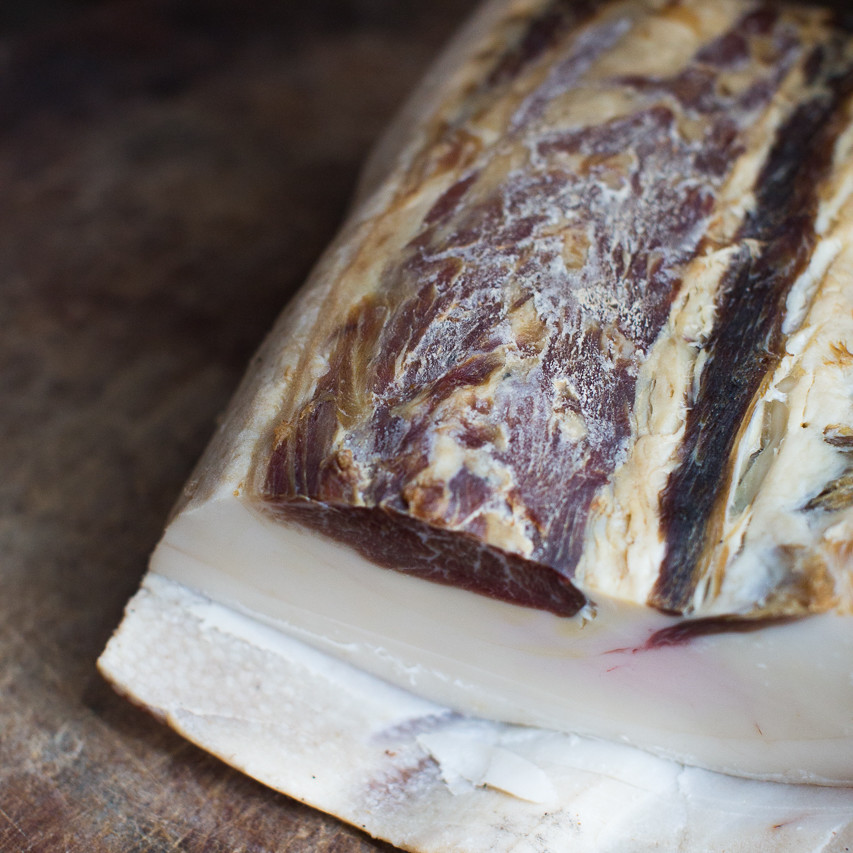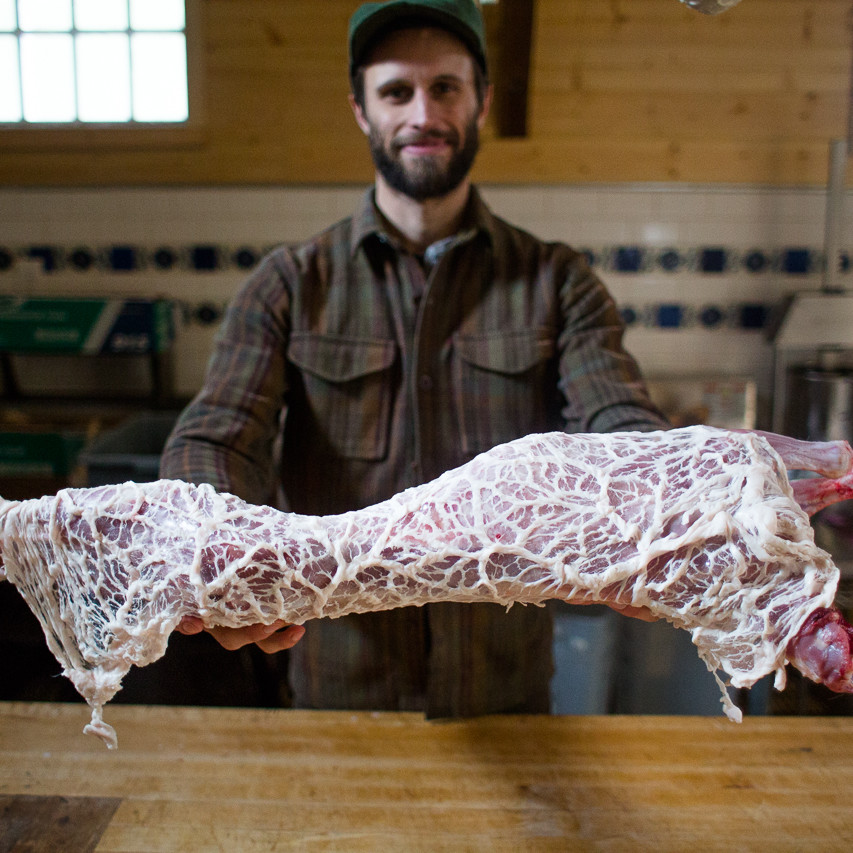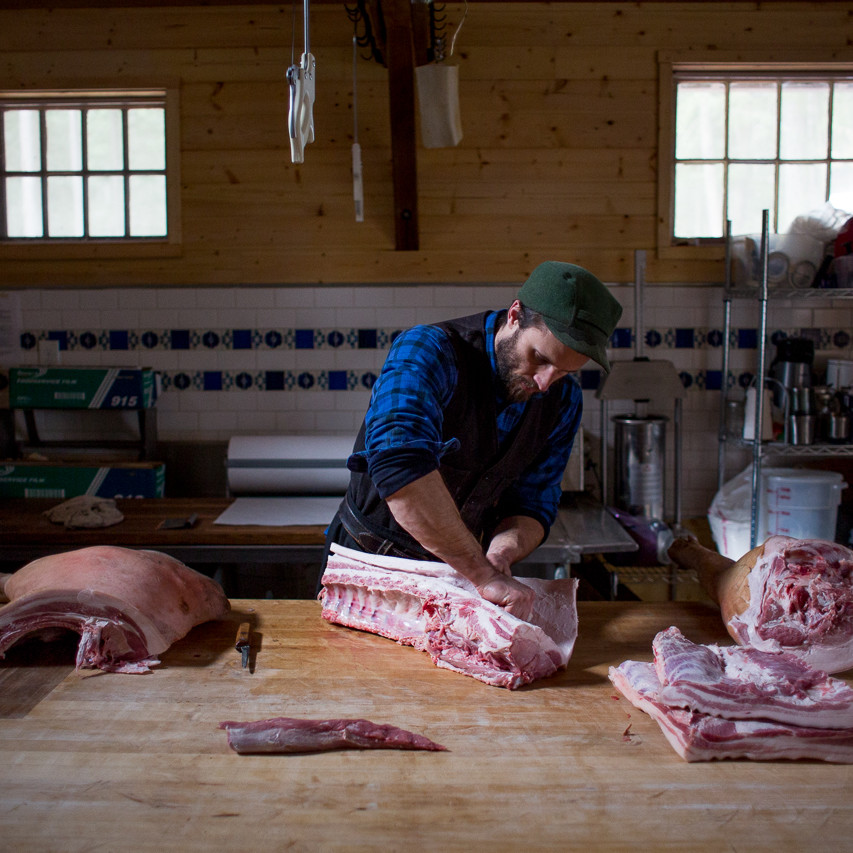

William Cobbett wrote in 1883 that homemade bacon is a great softener of the temper and promoter of domestic harmony. This, above all, is why we must relearn how to make it. It is an unqualified good, the benefits of which belie its humble ontology as a mere food item.
For most of my students, this is the hardest thing to grasp. It is not that backyard slaughter and home curing are too difficult, but too magnanimous. They are too simple and so much good comes from them that the modern mind searches for hidden complexity or Trojan horses full of nefarious bacteria. Unfortunately, almost every other work on the subject only confirms these fears.
When the pig is removed from the assembly line and reinstated in the backyard, the old wisdom emerges again.
For example, the recipe for headcheese is made obvious by watching a pig root. Salami is made safely and deliciously not because of ingredients isolated in a lab, but because of bacteria already present in the home kitchen. Judicious use of salt and fat unlock every work of charcuterie and cookery. Nothing imparts the rationale of butchery like watching your pig trot up to a full trough. All this to say, the end product of sausage or bacon is dependent upon and therefore simplified by intimacy with the living pig.
Only the tapestry taken as a whole discloses the entire pattern.
Each thread of temperature, cooking time, salt quantities, ingredients and butchered cuts becomes an intuited part of the weave, banishing slavish adherence to recipes.
So when I teach pork provender for the home kitchen, it is not with the tyranny of a chef, though the meals are unsurpassed in quality; not with the authority of the rock star butcher, though the roasts are just as magnanimous; not with the elliptical dismissiveness of a hillbilly, though no less grounded in local tradition. Rather, I am one beggar telling another beggar where bread can be found.
People respond to this voice because it appropriates disparate realms of enigmatic foodieism and anchors them in their native ordinariness where the only prerequisite is the honest desire to satisfy hunger as gracefully as possible. I believe a return to the peasant kitchen restores intelligibility to feeding ourselves.



